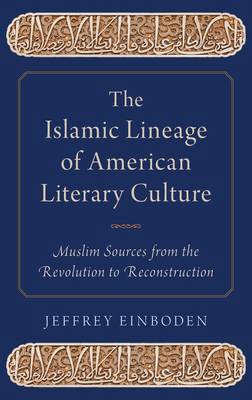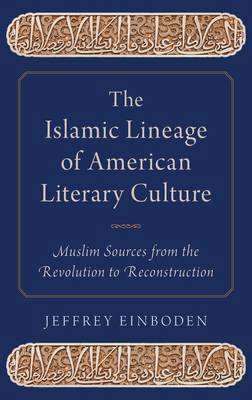
- Afhalen na 1 uur in een winkel met voorraad
- Gratis thuislevering in België vanaf € 30
- Ruim aanbod met 7 miljoen producten
- Afhalen na 1 uur in een winkel met voorraad
- Gratis thuislevering in België vanaf € 30
- Ruim aanbod met 7 miljoen producten
Zoeken
The Islamic Lineage of American Literary Culture
Muslim Sources from the Revolution to Reconstruction
Jeffrey Einboden
Hardcover | Engels
€ 217,95
+ 435 punten
Omschrijving
Uncovering Islam's little known yet formative impact on U.S. literary culture, this book traces genealogies of Islamic influence that span America's earliest generations, reaching from the Revolution to Reconstruction. Excavating personal appeals to Islam by pioneering national authors-Ezra Stiles, William Bentley, Washington Irving, Lydia Maria Child, Ralph Waldo Emerson-Einboden discovers Muslim discourse woven into the familiar fabric of unpublished letters and sermons, journals and journalism, memoirs and marginalia. The first to unearth multiple manuscripts exhibiting American investment in Middle Eastern languages and literatures, Einboden argues that Islamic precedents helped to prompt and propel creativity in the young Republic, acting as vehicles of artistic reflection, religious contemplation, and political liberation. Intersecting informal engagements and intimate exchanges, Islamic sources are situated in this timely study as catalysts for American authorship and identity, with U.S. writers mirroring the defining struggles of their country's first decades through domestic investment in the Qur'an, Hadith, and Persian Sufi poetry.
Specificaties
Betrokkenen
- Auteur(s):
- Uitgeverij:
Inhoud
- Aantal bladzijden:
- 240
- Taal:
- Engels
Eigenschappen
- Productcode (EAN):
- 9780199397808
- Verschijningsdatum:
- 1/09/2016
- Uitvoering:
- Hardcover
- Formaat:
- Genaaid
- Afmetingen:
- 157 mm x 236 mm
- Gewicht:
- 408 g

Alleen bij Standaard Boekhandel
+ 435 punten op je klantenkaart van Standaard Boekhandel
Beoordelingen
We publiceren alleen reviews die voldoen aan de voorwaarden voor reviews. Bekijk onze voorwaarden voor reviews.











